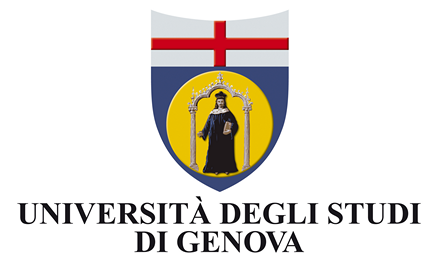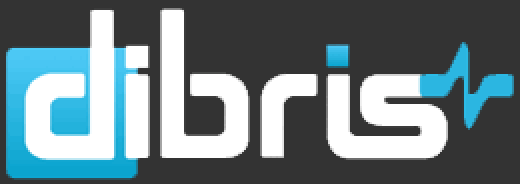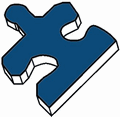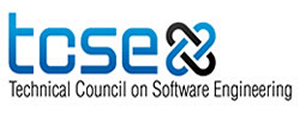

CSMR 2013 takes place in Genova (Italy), the city of lighthouse.

Software Engineering Research Group at DIBRIS, University of Genova.


Call for Submissions
Submitted articles should not have been published previously, or have been submitted for publication elsewhere. All submissions will be reviewed by at least three program committee members and should adhere to the IEEE 8.5" x 11" two-column format. Please ensure to use the current IEEE styles, which were updated recently. All submissions must be in English. Submissions should be uploaded electronically in PDF format via the CSMR submission sites:
-
Technical Research Papers - (10 pages):
https://www.easychair.org/conferences/?conf=csmr2013 -
ERA, Tool Demonstrations, Doctoral Symposium, Industrial Papers
(4 pages):
https://www.easychair.org/conferences/?conf=csmr2013sat -
European Projects Papers - (4 pages):
https://www.easychair.org/conferences/?conf=csmr2013euprojects -
Workshop Proposals - (2 pages):
Proposals should be e-mailed to both chairs
The CSMR 2013 proceedings will be published in IEEE Digital Library.
- Conference Topics
- Technical Research Papers
- ERA Papers
- Tool Demonstrations
- Doctoral Symposium Papers
- European Project Papers
- Industrial Papers
- Workshop Proposals
Conference Topics (non exclusive)
For all types of solicited submissions, the topic should be of direct interest to the maintenance and reengineering community. A non-limitative list of such topics is given below:
- Tools, formalisms and methods supporting the evolution of software systems, software architectures and software models.
- Methods and techniques to assess, enable, improve and certify maintainability and evolvability of software intensive systems.
- Techniques and approaches for software analysis, comprehension, and reconstruction.
- Process models for software maintenance, reengineering, and evolution.
- Experience reports on maintenance and reengineering of large-scale systems.
- Empirical studies in software reengineering, maintenance, evolution and renovation.
- Evaluation, assessment and benchmarks of reverse engineering and reengineering tools.
- Education-related issues to evolution, maintenance and reengineering.
- Language support for software maintenance and evolution.
- Migration and evolution in emerging paradigms (SOA, cloud, AOP, multi-core computing and the like).
Technical Research Papers
Research papers should describe original and significant work in the research and practice of software maintenance, evolution, reengineering and renovation. Theoretical results, case studies, empirical research and experiments are particularly welcome.
Papers must not have been previously accepted for publication nor concurrently submitted for review in another journal, book or conference/workshop.
Full paper submissions, not exceeding 10 pages, should be uploaded electronically in PDF format via the CSMR submission site.
All papers will be reviewed by at least three members of the program committee. All papers and reviews are accessible to all PC members (exempt those reporting a conflict of interest) to facilitate a comprehensive and open minded online decision on paper acceptance.
For further details contact your program chairs Anthony Cleve and Filippo Ricca.
ERA Papers
Goals and Scope
The goal of the Early Research Achievements (ERA) track is to provide researchers and practitioners with a forum for presenting novel ideas in early stages of research. The proposed ideas and promising work submitted to this track do not require to have been fully evaluated. The topics of interest for this track are the same as the main research track and concern all the topics in the research and practice of software maintenance and evolution.
The ERA track is specifically looking for fresh, innovative, provocative ideas. We aim to create an open atmosphere where discussion and feedback stands central.
Papers submitted to the ERA must not have been previously accepted for publication or submitted for review to another conference, journal, or book.
Format
Submissions must be in English and conform to the IEEE proceedings style. They must be four-page long, including all text, references, appendices, and figures. Papers must be submitted electronically as PDF files via Easychair.
Review and Evaluation Criteria
Submissions will be evaluated on the basis of their originality, importance of contribution, soundness, evaluation, quality of presentation, and appropriate comparison to related work. Emphasis will be put on the originality and timeliness of the proposed contribution; a full empirical evaluation of the proposed ideas is not required. Each submission will be reviewed by at least two members of the ERA Program Committee.
Chairs
- Andy Zaidman, Delft University of Technology – The Netherlands
a [dot] e [dot] zaidman [at] tudelft [dot] nl - Ali Mesbah, University of British Columbia – Canada
amesbah [at] ece [dot] ubc [dot] ca
Program Committee
- Alexander Serebrenik, Eindhoven University of Technology
- Georgios Gousios, Delft University of Technology
- Mariano Ceccato, Fondazione Bruno Kessler-IRST
- Eugenio Zimeo, University of Sannio
- Bram Adams, École Polytechnique de Montréal
- Christoph Treude, University of Victoria
- Eleni Stroulia, University of Alberta
- Daniel Ratiu, Fortiss GmbH
- Michael Würsch, University of Zurich
- Tom Mens, Universit de Mons-Hainaut
- Elmar Juergens, Technische Universitaet Muenchen
- Felienne Hermans, Delft University of Technology
- Abram Hindle, University of Alberta
- Alberto Bacchelli, University of Lugano
- Serge Demeyer, Universiteit Antwerpen
- Kim Mens, Université catholique de Louvain
- Emad Shihab, Rochester Institute of Technology
- Angela Lozano, Université catholique de Louvain
- Jurgen Vinju, Centrum Wiskunde & Informatica
- Adrian Kuhn, University of British Columbia
For further details contact your ERA track chairs Andy Zaidman and Ali Mesbah.
Tool Demonstrations
The CSMR 2013 Tool Demonstration track is an important part of the conference with the goal of allowing live presentation of tool prototypes. Since tools are central to research in software maintenance and reengineering, tool demonstrations have a prominent role within the conference and add to the visibility of the associated research.
Tool demonstrations are expected to present tools that implement a research approach. Any of the CSMR 2013 topics of interest are appropriate areas for tool demonstrations.
Each submission will be reviewed by at least two members of the tool demonstrations program committee. The committee will review each submission to assess the relevance and quality of the proposed demonstration. Submissions should describe their relevance to software maintenance, discuss the level of maturity of the tool, and reference the foundations upon which they are based.
Accepted tool demonstrations will be allocated 4 pages in the conference proceedings. Demonstrators will be invited to give a presentation that will be scheduled into the conference program.
Paper Organization
Submissions of proposals for formal tool demonstrations must:
- adhere to the CSMR 2013 proceedings format (proceedings style);
- have a maximum of 4 pages that describe the tool;
- have an appendix (not included in the 4 pages count) that provides a brief description of how the demonstration will be conducted (possibly illustrated with further screen shots);
- provide a URL from which the tool can be downloaded, with clear installation steps. All examples and scenarios presented in the paper and appendix should be replicable directly.
Chairs
- Xavier Blanc, University of Bordeaux, France
xavier [dot] blanc [at] labri [dot] fr - Jacques Klein, University of Luxembourg, Luxembourg
jacques [dot] klein [at] uni [dot] lu
Program Committee
- Nicolas Anquetil, University of Lille-1, Lille, France
- Olivier Barais, Université de Rennes 1 / IRISA, Rennes, France
- Franck Fleurey, SINTEF IKT, Oslo, Norway
- Andy Kellens, Vrije Universiteit, Brussel, Belgium
- David Röthlisberger, University of Bern, Bern, Switzerland
- Jim Steel, The University of Queensland, Brisbane, Australia
- Antonio Vallecillo, Universidad de Málaga, Malaga, Spain
- Ragnhild Van Der Straeten, Vrije Universiteit, Brussel, Belgium
For further details contact your Tool Demonstrations chairs Xavier Blanc and Jacques Klein.
Doctoral Symposium Papers
The CSMR doctoral symposium provides an exciting environment for PhD students. They can share not only their results, but also their vision of the future. Next to the authors of the accepted abstracts, we invited a number of senior experts in the field to listen to the students and to engage them in discussion. We exchange feedback and experiences, in order to help each other further our careers as researchers.
Accepted papers will be presented at the track, in front of expert panel members and other Doctoral Symposium participants. Each presentation will be followed by questions from the audience and comments/feedbacks from the panel members. In addition, there will be general discussion addressing various issues on PhD work and research experience in general. The Doctoral Symposium participates are invited to submit questions and issues they would like to have discussed as part of the panel session before the PhD Forum.
The papers should be a 4-page summary of your PhD project or dissertation and include:
- a statement of the technical problem addressed and its importance;
- the specific research hypothesis or questions;
- a sketch of the research methodology and proposed solution;
- a description of the adopted evaluation method and the result obtained so far; and the expected contributions of your PhD research.
For further details contact your doctoral symposium track chairs Massimiliano Di Penta and Radu Marinescu.
European Project Papers
Today’s European projects, try to bridge the famous gap between research (e.g., academia) and practitioners (e.g., industries). These projects, in fact, can allow the research community to practice with their research ideas in real industrial environment while, at the same time, can raise the need for new and different research inspired by the needs of industry. The European Projects track (EU track) of CSMR 2013 provides an opportunity for researchers involved in ongoing and recently completed European research projects (both national and international) related to the themes of the conference to present their projects and disseminate the objectives, deliverables, or outcome of these projects. Hence, on one side, the EU track offers the possibility to project participants to share and disseminate their project results. On the other side, it allows the CSMR participants to get a better insight in which research projects are currently going on in Europe within the field of software maintenance and reengineering. The EU track of CSMR represents a consolidated forum where projects, researchers and industrial practitioners can share experience, ideas and knowledge.
Topics
The topics of interested of the EU track correspond to the ones of the CSMR 2013. All submissions describing projects that involve aspects concerning the software maintenance and evolution are welcomed. Special interest goes to submissions that describe how the projects results have been assessed and evaluated.
Eligible Projects
The types of projects that are eligible for presentation in this track are manifold:
- Projects funded by the European Union, by national or local funding organizations, or even by individual universities and industries;
- Projects focused on fundamental research, applied research or be more industry-oriented;
- Projects carried out by an international consortium of partners or projects might involve partners of the same country.
Paper Organization
Each submission should clearly indicate:
- The name and acronym of the project
- The source and amount of funding
- The list of participants (with names and affiliations) involved in the project
- The link to the official project web site
- The status and duration of the project
- Detailed description of goals of the project
- Description of the (expected) achievements and (expected) outcome of the project
- Detailed explanation of the relevance of the project (or one of its workpackages) to the themes of the CSMR conference
- References to related work or related projects
Paper Format
Each submission must be a 4-page paper formatted according to the IEEE Conference Publishing Services formatting instructions (i.e., the same used from the main CSMR conference). All submissions must be in English. All submissions will be peer reviewed by three members of the international Program Committee of the EU track. The reviewers will assess the completeness, the quality of and the relevance of the submission for the target audience.
Each accepted submission will be part of the CSMR conference proceedings. At least one author of the accepted submission will be registered at the conference and present the accepted submission during the EU track of CSMR 2013.
Chairs
- Alessandro Marchetto, FBK – Italy
marchetto [at] fbk [dot] eu - Tanja E.J. Vos, Universidad Politecnica de Valencia – Spain
tvos [at] dsic [dot] upv [dot] es
Program Committee
- Raian Ali, Bournemouth University – UK
- Giulio Antoniol, Ecole Polytechnique de Montreal – Canada
- Arthur Baars, Universidad Politecnica Valencia – Spain
- Alessandra Bagnato, Softeam - R&D Department – France
- Jens Borchers, Schufa – Germany
- Stefan Burger, EADS – Germany
- Oliver Creighton, Siemens – Germany
- Mark Harman, University College London – UK
- Paola Inverardi, University of L'Aquila – Italy
- Leonardo Mariani, University of Milano-Bicocca – Italy
- Clara M. Pezuela Robles, Atos – Spain
- Giuseppe Scaniello, Universita' della Basilicata – Italy
- Onn Shehory, IBM Haifa Research Lab
- Angelo Susi, FBK – Italy
For further details contact your European track chairs Alessandro Marchetto and Tanja E.J. Vos.
Industrial Papers
Goals and Scope
The aims of the Industrial Papers track of CSMR 2013 is to share experience and knowledge out of industrial projects and studies. Both practitioners and researchers are encouraged to contribute results, obstacles, and lessons learned regarding maintenance and reengineering in real world settings. We welcome submissions of experience reports, industry surveys, action research, empirical studies involving industry data, as well as evidence based identifications of unresolved research challenges associated to software maintenance and reengineering.
Format
Submissions must be in English and conform to the IEEE proceedings style (i.e., the same used from the main CSMR conference). They must be four-page long, including all text, references, appendices, and figures. Papers must be submitted electronically as PDF files via Easychair.
Review and Evaluation Criteria
Submissions will be evaluated on the basis of industry relevance, originality, soundness, empirical and/or practical validation, quality and consistency of presentation, and appropriate comparison to related work. Special emphasis will be put on the relevance of the proposed contribution to practitioners.
For further details contact your industrial track chair Joost Visser.
Workshop Proposals
Workshops are a good venue for students to get initial feedback on their first research endeavours, and for more experienced researchers to brainstorm with their peers about emerging topics in their field.
We hereby solicit proposals for workshops to be held in conjunction with the main CSMR 2013 conference. Workshops can be full or half day, and devoted to a specific topic of interest in the software maintenance and reengineering domain, ranging from theoretical underpinnings to practical applications or case studies.
Workshops should have a focused topic, provide opportunity for lively discussion, and attract enthusiastic participants. Workshop organisers are responsible for their own submission, reviewing and publishing arrangements.
Workshop proposals must be no longer than 2 pages in IEEE proceedings format and should include the following information:
- workshop title
- workshop organizers and contact information
- brief description of workshop topic and goals, and intended audience
- workshop format: full day or half day, format of sessions and discussions
- expected outcomes and follow ups
- paper selection criteria and mechanism and publication plans
- previous experience of the organisers and/or previous editions of the workshop
- infrastructure needed to run the workshop (e.g., beamer, whiteboard, flip chart)
- the number of expected attendees (or the number of attendees at the previous editions)
- other issues that could be relevant to the workshop.
Workshop proposals will be judged on originality, relevance to CSMR 2013, expected level of interest in the topic, and the organizers' ability to lead a successful workshop.
Workshop proposals should be e-mailed to both chairs.
Track Chairs
- Walter Cazzola, University of Milan – Italy
cazzola [at] di [dot] unimi [dot] it - Michel Wermelinger, The Open University – UK
m [dot] a [dot] wermelinger [at] open [dot] ac [dot] uk
For further details contact your Workshop chairs Walter Cazzola and Michel Wermelinger.





